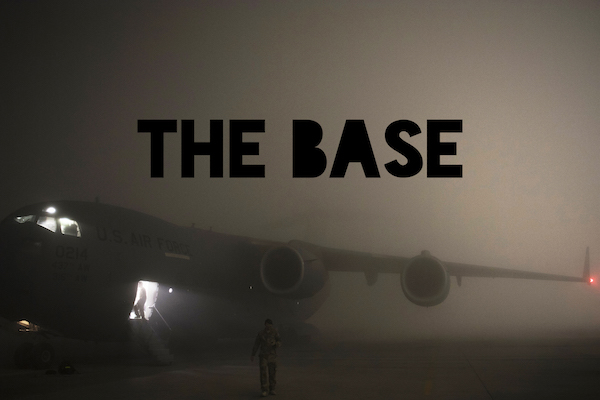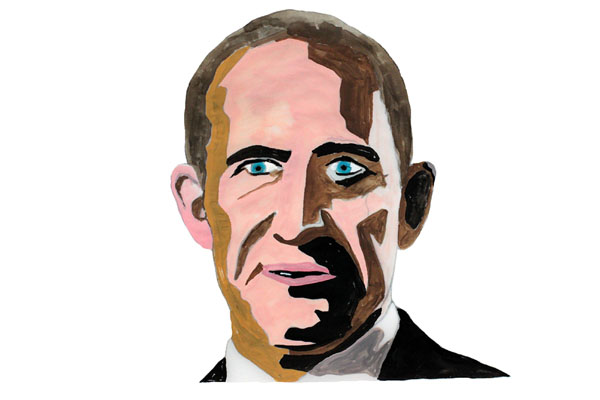Open Warfare

ANALYSIS
Last November, chief of defence force Lieutenant-General Tim Keating spent $35,000 of taxpayers’ money holding a one-day “workshop” on “Transparency and Accountability in Modern Military Operations.”
It could have been money well-spent. As General Keating pointed out in his letter to invitees, “Transparency and accountability in the New Zealand Defence Force are important issues in a democracy and as such deserve considered discussion and debate.”
I couldn’t agree more.
Yesterday Stuff published a report based on research by human rights campaigner Harmeet Sooden that shows the National-led government and the Defence Force secretly extended the role of our troops in Iraq from “training” to “advise and assist.” This sounds suspiciously like the “mentoring” role our SAS troopers were assigned in Afghanistan. Despite denials from then Prime Minister John Key and the Defence Force, this “mentoring” role turned out to involve actual combat, including “kill or capture” missions.
The 'advise and assist' revelations come after allegations last year in the book Hit and Run of 21 civilian deaths and injuries in a 2010 SAS-led raid in Afghanistan.
The book was followed by a Stuff Circuit investigation into what really happened at the Battle of Baghak in 2012 and which examined events around the 2004 SAS firefight where Willie Apiata earned his Victoria Cross.
Both projects provided evidence that the Defence Force had repeatedly misled the public. In short, they raised serious questions about “transparency and accountability in the New Zealand Defence Force.”
Ironically, journalists were not invited to General Keating’s workshop on transparency and accountability a few months later. Lawyers, academics and NGOs were welcome, but media – those whose job it is to monitor powerful institutions like the NZDF – were banned.
One attendee observed that “the workshop was notable for not addressing the elephants in the room” – the allegations in Hit and Run and The Valley. When Wayne Mapp, National’s former defence minister, stood and referred to one of these elephants, the silence was deafening.
The Defence Force’s reluctance to “discuss and debate” what it has done and is doing in America’s “war on terror” has become “standard operating procedure.” Its narrative since 9/11 has been characterised at best by rosy descriptions of events and at worst by spin, obfuscation and outright falsehoods. Those who have challenged the official line have been labeled as “peaceniks,” “subversive journalists” and even “traitors.”
But it's not only “peaceniks” like Harmeet Sooden who are questioning whether New Zealanders have been misled about what our forces are doing in Iraq. It is not only “subversive journalists” like myself or my Stuff Circuit colleagues who have questioned the Defence Force’s account of events in Afghanistan. Wayne Mapp – hardly a “traitor” or bleeding-heart Leftie – is among an increasing number of establishment figures who have had the courage to voice concerns.
Another is Christopher Pugsley, the highly-regarded military historian and retired Lieutenant-Colonel. Concluding a review of Hit and Run he wrote: “On the balance of probabilities, [General Keating’s] robust defence does not stand up to scrutiny – a New Zealand-led and controlled operation resulted in a large number of civilian casualties….” The raid, said Pugsley, appeared to have gone badly wrong. “I trust we learn from it.”
That seems unlikely. Far from learning from its mistakes, the Defence Force often seems to respond by working harder to cover them up. The Defence Force operates in our name, yet has been repeatedly caught out fudging the facts to the public.
That is why we need an independent inquiry – not only into the claims in Hit and Run and The Valley or into this week’s news about what our forces are doing in the war against the Islamic State but into all our military activities since the “war on terror” began.
We need to know first and foremost whether our forces have been complicit in breaches of international law.
How many raids have New Zealand troops been involved in where civilians were killed or wounded?
How many people were we involved in transferring to torturers in Afghanistan, and are we doing the same thing on “advise and assist” operations in Iraq?
Are we complicit in a bombing campaign in Iraq that a New York Times investigation found has breached the legal principles of distinction and proportionality, killing civilians at a rate 31 times higher than the US-led coalition has admitted?
Getting answers to such questions should be a matter of urgency. As the British historian Mark Curtis has argued, “For any government committed to promoting the highest ethical standards in its foreign policy, violating international law would surely be an ultimate sin.”
Labour, NZ First and the Greens all claim to support the highest ethical standards in foreign policy. MPs from each of these parties – including Jacinda Ardern – have supported calls for an inquiry into whether the Defence Force breached international law in Afghanistan.
Yet more than 100 days after they entered office, little has happened aside from promises to “have a conversation” about the issue.
The cynics will say there aren’t any votes for the government in Afghanistan or Iraq – that the prime minister’s decision on even a limited inquiry will most likely be: “Let’s not do this.”
I hope she proves the cynics wrong.
Disclosure: Jon Stephenson is a co-author of Hit and Run and an associate producer of The Valley.








